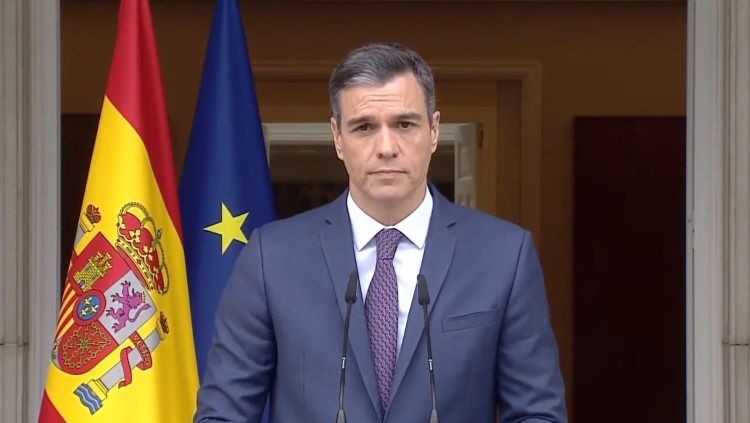Ángel Collado
By bringing forward the general elections, Pedro Sánchez is avoiding any hint of internal questioning within the PSOE after his personal failure in Sunday’s regional and municipal elections. But in addition to concealing the magnitude of his defeat on 28-M, the president of the Government is also forcing an immediate agreement between the different factions of his populist partners (Podemos, its local confluences and the embryonic Sumar party headed by Yolanda Díaz) to seek a mobilisation of the entire left around him. It is his last trump card, along with the rotating presidency of the European Union, to remain in power.
With the majority of the PSOE’s regional leaders pending a move to the opposition, unemployment or a return to their professional careers, and his partners on the verge of political disappearance in practically all the autonomous parliaments, the head of the Executive came out of the elections so badly affected that he did not want to prolong the agony of a cabinet that was already incapable of passing anything in Congress.
Sánchez leaves the PSOE with the worst share of regional power it has had in its history since the Transition and the birth of the State of the autonomous regions in the 1980s. The Socialists only have an absolute majority in Castilla-La Mancha (with five provincial constituencies), and thanks to the fact that the current president of the regional government, Emiliano García-Page, managed to run his own personal campaign against Sanchez and his allies.
Moreover, of the 17 regional governments, the PSOE only has a clear chance of holding on in two uniprovincial ones (Asturias and Navarre), with the support of the extreme left in the first case and the heirs of ETA’s political arm (Bildu) in the second.
The rest of autonomous Spain is a wasteland for the socialists, with thousands of militants and leaders awaiting their future outside executive and representative posts in institutions and administrations such as those of the Valencian Community, Extremadura, the Balearic Islands and Aragon. These are regions where the socialists took their continuity in power for granted until Sánchez, his partners and his pacts with Bildu took centre stage in the national campaign.
The PSOE will not have the time or opportunity to make any self-criticisms now, even though Sánchez has reduced the weight of internal debate and decision-making bodies such as the federal committee. All the federations must now start preparing for the general elections in order to stand up to the rise of the PP.
Nor will Sánchez’s far-left allies have time to continue fighting among themselves. Before 9 June, the parties and coalitions that want to run in the elections have to present themselves to the electoral boards. Both Podemos and the Sumar project headed by Sánchez’s vice-president Yolanda Díaz have ten days to reach an agreement if they want to go to the polls together, and another ten days to agree on the composition of the lists.
The negotiation of these far-left candidacies will be particularly complicated. In this legislature they had the 35 deputies elected in 2019, but the polls and, above all, the results of 28-M that leave them out of almost all the regional parliaments point to a general downward trend for July. Only in large constituencies such as Madrid, Barcelona or Valencia do they have a clear chance of obtaining representatives, and not all the current high-ranking government officials, ministers, secretaries of state or directors general will fit in the permanent posts.
The call for the mobilisation of the left to stop the PP and ‘the ultra-right’, as Sánchez’s government claims, was already tried out by the PSOE and Podemos, each on their own, in the regional elections in Andalusia and Madrid two years ago, with the well-known result: the PP became hegemonic in both regions, and even captured a part of the socialists’ traditional voters.
The president of the government is now repeating the same message of positioning himself as a dike against ‘the right’ in the hope of winning back PSOE voters who have now abstained in the regional elections, but with the added intention of benefiting from the collapse of Podemos. This has been understood by his current partners willing to present themselves as the “authentic left” while Pablo Iglesias proposes to Sánchez to head a full-fledged popular front in the knowledge that his offer will be ignored.
Sánchez has seen no obstacle to mixing his European presidency with the start of the election campaign set for 7 July. The coincidence will allow him to alternate PSOE rallies with the more institutional image of his events in the EU.







